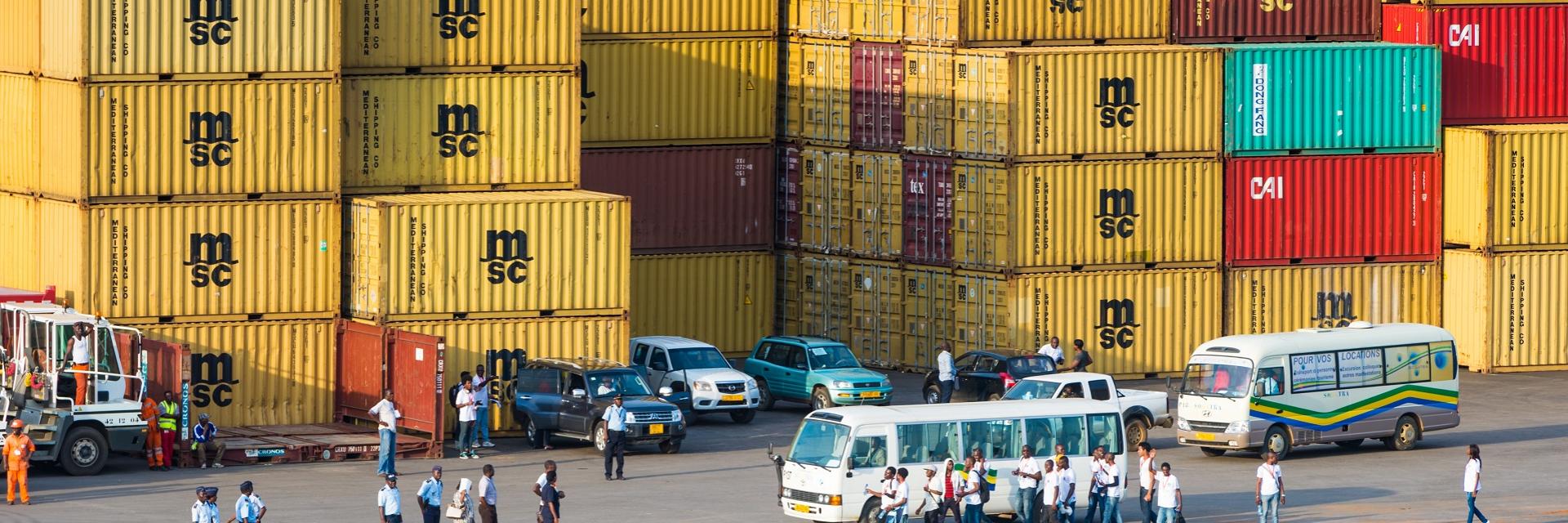Yaounde, 30 March 2022 (ECA) – With the advent of the African Continental Free Trade Area (AfCFTA), Central African governments adopted AfCFTA national strategies with the support of ECA and its partners. These countries have also developed national industrialization and economic diversification plans (PDIDE) and industrialization strategies (PDIs), in accordance with the Douala Consensus. In 2020, Cameroon was the first country in the sub-region to finalize its strategy with the support of the ECA, but also to review its Master Plan for Industrialization (PDI, 2015), with the ambition of becoming "the factory of the new industrial Africa".
In an effort to align trade and industrial strategies, the Government of Cameroon had requested the expertise of the ECA, which partnered with researchers from Trade Advisory, an entity attached to North-West University (NWU), which has unique expertise in the Decision Support Model (DSM). The results of the DSM approach applied in Cameroon have made it possible to identify African markets where Cameroon can sell the products identified in its Master Plan for Industrialization (PDI) and its trade ambitions highlighted by the AfCFTA strategy. The exercise highlighted the integrated approach to harnessing the trade potential of Cameroon.
The ECA and Trade Advisory are committed to extending the DSM modelling project to the entire Central African sub-region. This extension requires the collection of information for each country of the sub-region, including data related to logistics. In the DSM model, hypotheses about routes and other logistical matters are at the heart of the process of identifying target markets. The logistics specification provides the parameters for the distance (and time required) to access the target market.
While there is some information on routes and logistics available in the public domain, this information does not always reflect the current situation of the logistical networks. For example, while there may be a direct route between two cities, it is possible that trucks use an indirect route for security reasons. For this reason, the validation of logistics is a fundamental step in the process of modelling in order for the model to be as precise as possible and hence provide realistic outcomes in support of decision- and policymaking.
In this context, the ECA is organizing a virtual workshop for the validation of logistics hypotheses for each Central African country to inform the development of the DSM model for Central Africa. The virtual workshop will take place on 30 March 2022 from 13h00-16h45. Participants include experts based across Africa, in Europe, and in the USA, from the UN, the World Bank, and member governments, in the fields of transportation, infrastructure, and logistics, with knowledge of Central African countries and the sub-region in general.
Key issues to be addressed:
Participants will review and validate the key logistical hypotheses through discussions addressing the following main points:
a. Major transport corridors between cross-border main economic centres
b. Main border entry / exit points
c. Main mode of transport and mode changes
d. Access routes to all African markets from the home market
e. Any active projects that will provide / improve access on various corridors
f. Data availability to support hypotheses
-ENDS-
Media Contact
Lot Tcheeko, Knowledge Management Officer
United Nations Economic Commission for Africa
637, rue 3.069, Quartier du Lac, Yaounde, Cameroon
Tel: +237 222504321
E-mail: tcheeko@un.org

